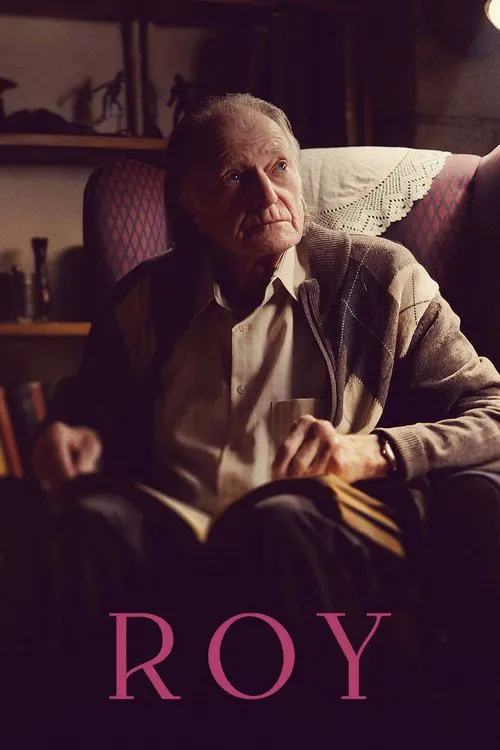Roy

Enredo
Roy, directed by Heath Davis, is a poignant and heartwarming portrayal of a reclusive widower's journey toward healing and connection. The film follows the story of Roy, a man who has become isolated and withdrawn in the wake of a profound loss. By day, he spends his hours cold calling strangers from phone books, searching for fleeting moments of human connection in a world that can sometimes feel overwhelming and isolating. This narrative setup is often employed in films to highlight the protagonist's emotional state, serving as a metaphor for the character's inner world. In Roy's case, the cold calls serve as a manifestation of his desperate longing for human interaction and his attempts to fill the void left by his late wife. These phone calls, often brief and superficial, leave Roy feeling empty and unfulfilled. The plot takes an unexpected turn when Roy accidentally calls an adult hotline worker, Cara. Played by Aislinn Weaver, Cara is a vibrant and optimistic individual who is initially perplexed by Roy's awkward demeanor and incoherent messages. Her genuine concern and warmth are what initially set Roy on a path toward reconnection and healing. Cara, sensing Roy's vulnerability, takes it upon herself to engage with him in a series of awkward but endearing phone conversations. Her compassion and empathy serve as a catalyst for Roy's emotional awakening, helping him to confront the pain and grief that has been holding him back for so long. As the unlikely friendship between Roy and Cara blossoms, the film delves into themes of loneliness, disconnection, and the human need for meaningful relationships. Heath Davis's subtle yet powerful direction captures the nuances of the characters' interactions, imbuing the film with a sense of authenticity and emotional depth. One of the film's greatest strengths lies in its nuanced exploration of complex emotions. The script, crafted by Heath Davis and Kris Mrksa, eschews sentimentality in favor of a more measured approach, allowing the characters' feelings to unfold naturally and authentically. The performances of the two lead actors are pivotal to the film's success. Josh Lawson's portrayal of Roy is both poignant and powerful, conveying the depth of the character's emotions through a series of subtle and often heartbreaking expressions. Aislinn Weaver's Cara is a delightful counterpoint to Roy's despair, offering a vibrant and optimistic presence that serves as a reminder of the possibility for healing and connection. The chemistry between the two leads is undeniable, and their interactions are often hilarious, awkward, and touching. The phone calls, which are a crucial aspect of the film's premise, become a clever device for exploring the characters' relationship and emotions. By using the phone as a medium for connection, the filmmakers are able to convey the isolation and loneliness that Roy feels, as well as the growing sense of intimacy and understanding that develops between him and Cara. Through Roy's story, the film highlights the importance of human connection in our lives. In an era of increasingly prevalent technology and social media, the film serves as a timely reminder of the value of genuine relationships and the need for empathy and compassion in our interactions with others. As the narrative reaches its poignant conclusion, Roy and Cara are shown to have formed a deep and lasting bond. The film ends on a note of hope and renewal, with Roy having finally found a sense of purpose and connection in his life. This redemptive arc is both satisfying and emotionally resonant, making Roy a film that will stay with viewers long after the credits roll.
Resenhas
Recomendações




